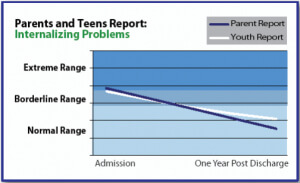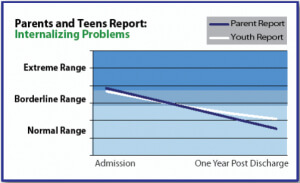
Why Therapeutic Boarding Schools for Troubled Teens Work
Why Therapeutic Boarding School for Troubled Teens?
How do parents decide the best program that will help their troubled teen and the family? When parents decide on the best kind of program, often they do so with the mindset that discipline is the most appropriate response for managing teenagers.
However, according several of the field’s most prominent researchers, punishment based models do not always work in the teen intervention setting. Without a proper treatment method, intervention programs that rely only on intimidation, coercion, and force will result to failure because it failed in the first place to identify and deal with the deep seated issues of a troubled teenager. That is one of the many reasons why therapeutic boarding school should be chosen over programs that employ such tactics.
Here are more reasons:
Therapeutic Boarding Schools Utilize the Best Intervention Technique
Due to the improving knowledge in the fields of psychology and psychiatry, better intervention techniques are being designed to specifically address the psychological and emotional needs of a troubled teenager.
In the 1980s, cognitive behavior therapy (CBT) was developed through the efforts of several American psychiatrists, most notably Aaron T. Beck. It became a favorite therapy method after numerous studies proved its effectiveness in treating a wide array of psychological and emotional distresses. In 1998,
American researchers Kaslow and Thompson published on national report proving that CBT indeed has a favorable treatment outcome compared to other classical approaches and it is the most promising for treating a wide array of psychological and emotional problems common to teenagers, such as anger, defiance, depression, anxiety, promiscuity, eating disorders, etc.
In the recent wake of teen boot camp controversies, leading boot camp researchers such as Dr. Doris MacKenzie and Jaime E. Muscar published reports that programs utilizing aggressive methods in their intervention approach should be discarded in favor of programs that use proven effective methods such as CBT. According to many experts, cognitive behavior therapy, such as those used in therapeutic boarding schools, offer the best chance of reducing recidivism rates and offering long term positive change in problem teenagers.
Therapeutic Boarding Schools are Proven Successful in Improving Teen Behavior
At the 2006 Annual Convention of the American Psychological Association, researchers Ellen Behrens, Ph.D. and Kristin Satterfield, B.S. of Canyon Research & Consulting, Inc. presented their findings from a multi-center study of youth outcomes in private residential treatment setting.
According to their report, private therapeutic residential programs show better immediate output compared to other methods (including public programs) in dealing with the issues of troubled teenagers. Not only that, private programs also show long term positive growth on its participants, with the positive assessments still being carried a year after completing the program.
According to the study which monitored 1,027 teenagers, ages 13 to 18, from nine participating programs, for one year following their completion of a residential therapeutic program, it was learned that teenagers suffering from internal problems such as anxiety and depression benefited a steady decline in their symptoms a year after discharge: 
For those having severe externalized problems such as anger, defiance, rebelliousness, substance abuse, etc, these teenagers benefited a steady decline in their symptoms a year after discharge:
Teens who completed the program and were assessed normal upon their release, maintained the steady decline in their symptoms a year after their discharge. According to the researchers, teens participating in a residential therapeutic program have the best chance of reduce their recidivism rates.
Therapeutic boarding schools focus on therapy, not punishment
When choosing the best intervention program, you must first consider whether your kid truly needs a tough love program in order to learn to behave. Rarely will children need a tough love program to learn how to manage themselves better. More likely, what your son or daughter need is a program that will teach him or her learning coping skills, a program with lots of therapy, support and self-esteem activities.
In order to produce a lasting positive change on a troubled teen, they themselves must have a desire to change in the first place. Even with the best treatment method, without the desire to change, teens will just relapse into bad habits. That is one major reason why punishment based models that utilize intimidation and scare tactics to elicit behavior change will never work in the teen intervention setting.



